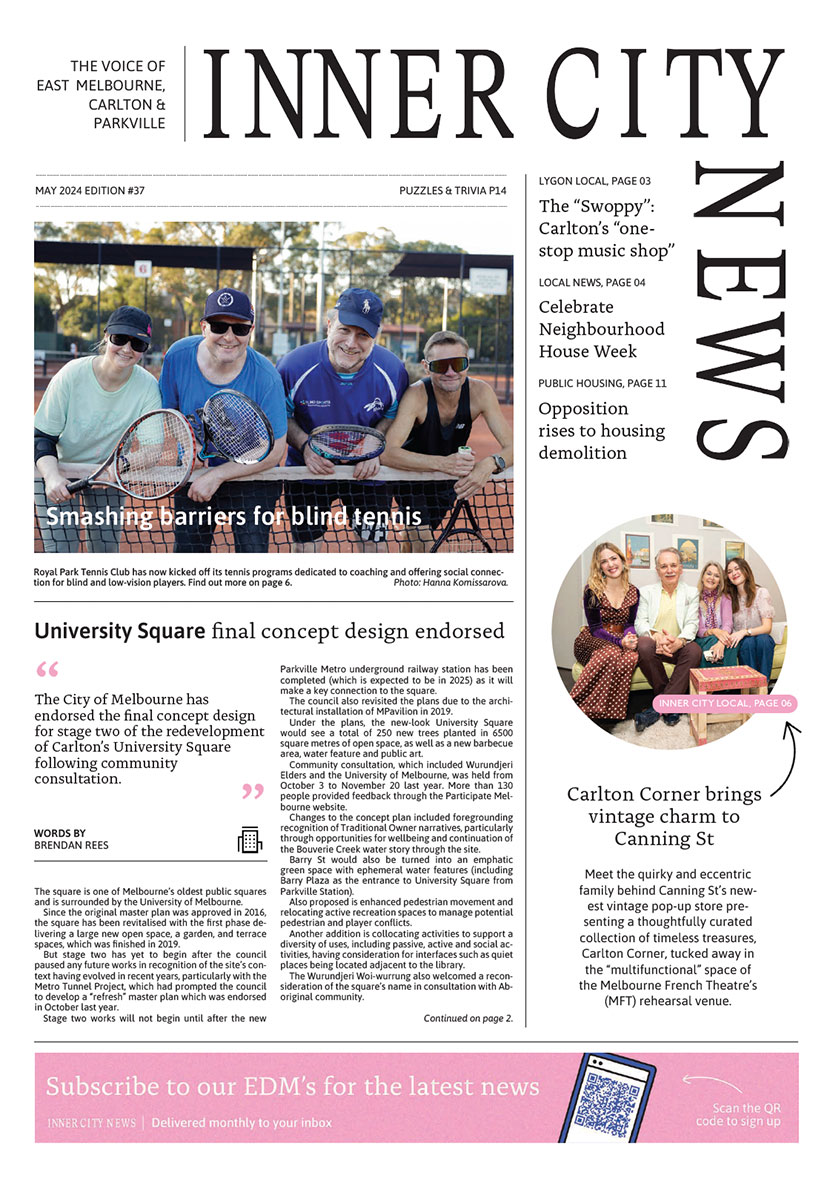Lead epilepsy researcher honoured by prestigious award
An unwavering commitment to improving the lives of people with epilepsy and other neurological conditions has earned a well-respected researcher an Australia Day honour.
Professor Mark Cook, a Parkville resident, and a director of neurology and chair of medicine at St Vincent’s Hospital Melbourne, was appointed an Officer in the General Division of the Order of Australia (AO).
The award, which was part of the Australia Day Honours List, recognised his “distinguished service to neurological medicine and research through contributions to the treatment of epilepsy”.
“Neurology is such an interesting specialty, so large and complex with so much being discovered,” Prof. Cook explained.
“Many new medications have become available over the years, but still about one-third of people with epilepsy aren’t controlled on the treatments we have, and surgery is suitable only for a relatively small number of people.”
“I became very interested in seizure prediction as the unpredictability of events is a major component of the disability caused by epilepsy, and new ways to treat seizures, such as brain stimulation and delivery of drugs directly to the brain.”
When told of his prestigious award, Prof. Cook said he was overwhelmed but added it was “such a great honour for me and all the people I work with”.
“I guess the first thing that went through my mind was what a great tribute it was to everyone who has been involved in the work that I do, over so many years.”
During his more than 30-year career, Prof. Cook, who is also a researcher at the Aikenhead Centre for Medical Discovery (ACMD) in East Melbourne (the first bioengineering facility of its kind in Australia) said much of his work involved close collaboration with engineers, and through research at the University for Melbourne and St Vincent’s, as well as the Bionics Institute, which had led to the development of an implantable device for monitoring epilepsy.
He said it was anticipated this breakthrough would help control seizures better “through more accurate measurement of the activity of the brain and its response to treatment, as well as ultimately providing prediction of seizures”.
Seeing the brain activity recordings we were making from our first implants were definitely the most exciting moments of my career.
Prof. Cook said the condition was of special interest to him as his dad had been diagnosed with epilepsy as an adult.
“I came to understand just how disabling the condition was. My early interest was how we could use new MRI scan technologies to make successful surgery available to more people, and I was able to establish an epilepsy surgery service at St Vincent’s Hospital to do this,” he said.
While passionate about outcomes, he conceded “none of this would have been possible without the support of my family and friends, together with so many wonderful colleagues, and I could never thank them enough”. •

Carlton Corner brings vintage charm to Canning St






 Download the Latest Edition
Download the Latest Edition